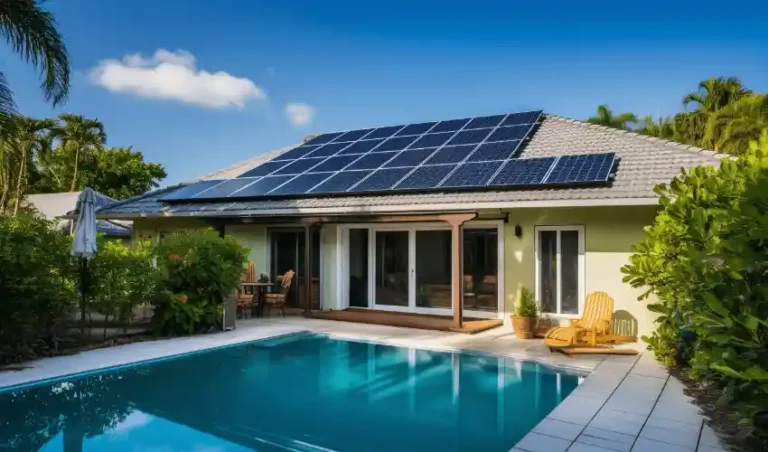Introduction: A pool can be the centerpiece of your outdoor oasis, offering relaxation, exercise, and enjoyment for you, your family, and your friends. However, to maximize your pool’s potential, especially in chillier months or cooler climates, investing in a pool heater is essential. Choosing the right pool heater can significantly enhance your swimming experience while ensuring comfort and extending your swim season. In this comprehensive guide, we’ll explore everything you need to know to make an informed decision when selecting the perfect pool heater for your needs.
Understanding Pool Heaters: Before diving into the selection process, it’s crucial to understand the different types of Pool & Spa Heaters Perth available. The three primary types are solar, electric, and gas heaters. Solar heaters utilize energy from the sun, electric heaters rely on electricity, and gas heaters burn natural gas or propane to generate heat. Each type has its own set of advantages and considerations, which we’ll delve into in the following sections.
Solar Pool Heaters: Solar pool heaters are eco-friendly and cost-effective solutions that harness energy from the sun to warm your pool water. They consist of solar panels installed on your roof or ground-mounted frames, connected to your pool’s filtration system. Solar heaters work best in regions with ample sunlight and can significantly reduce your energy bills over time. However, they may have limited effectiveness in cloudy or rainy climates and may require a larger initial investment compared to other types of heaters.
Electric Pool Heaters: Electric pool heaters use electricity to heat the water and are known for their efficiency and ease of installation. They can quickly raise the temperature of your pool water, providing on-demand heating regardless of weather conditions. Electric heaters are suitable for smaller pools or spas and are often preferred for their compact size and quiet operation. However, they tend to have higher operational costs compared to solar or gas heaters, especially in areas with expensive electricity rates.
Gas Pool Heaters: Gas pool heaters, powered by natural gas or propane, offer rapid heating capabilities, making them ideal for quickly warming up large pools or spas. They are highly efficient and can maintain desired temperatures regardless of outdoor conditions, making them perfect for colder climates or year-round swimming. Gas heaters are also favored for their compact design and ability to heat water quickly, but they do require a steady supply of gas, which can add to operational costs over time.
Factors to Consider When Choosing a Pool Heater: Now that we’ve covered the basics of each type of pool heater, let’s explore the key factors to consider when making your decision:
- Pool Size and Location: The size of your pool and your geographic location play a crucial role in determining the most suitable heater for your needs. Larger pools may require more powerful heaters to maintain optimal temperatures, while the climate in your area will influence the heater’s effectiveness and energy efficiency.
- Energy Efficiency: Consider the long-term operating costs of each type of pool heater, including energy consumption and maintenance requirements. Solar heaters offer the lowest operating costs but may have higher upfront expenses, while electric and gas heaters have varying degrees of efficiency depending on usage patterns and local utility rates.
- Installation and Maintenance: Evaluate the installation process and ongoing maintenance needs of each heater type. Solar heaters may require professional installation and periodic cleaning to ensure optimal performance, while electric and gas heaters may have simpler installation procedures but may need regular servicing to maintain efficiency.
- Environmental Impact: If sustainability is a priority, consider opting for a solar heater or exploring energy-efficient electric models. Solar heaters have minimal environmental impact, relying on renewable energy sources, while electric heaters can be powered by clean energy sources such as solar or wind power.
- Budget and Return on Investment: Determine your budget for purchasing and operating a pool heater, taking into account upfront costs, installation expenses, and long-term energy savings. While solar heaters may have higher initial costs, they offer significant savings over time, while gas heaters provide immediate heating but may have higher operational expenses.
Conclusion: Choosing the right pool heater requires careful consideration of various factors, including pool size, location, energy efficiency, installation requirements, environmental impact, and budget constraints. Whether you opt for a solar, electric, or gas heater, selecting the best option for your needs can enhance your swimming experience, extend your swim season, and provide years of enjoyment for you and your family. By weighing the pros and cons of each type of heater and consulting with a professional installer, you can make an informed decision that meets your heating needs while maximizing energy efficiency and cost savings in the long run.
